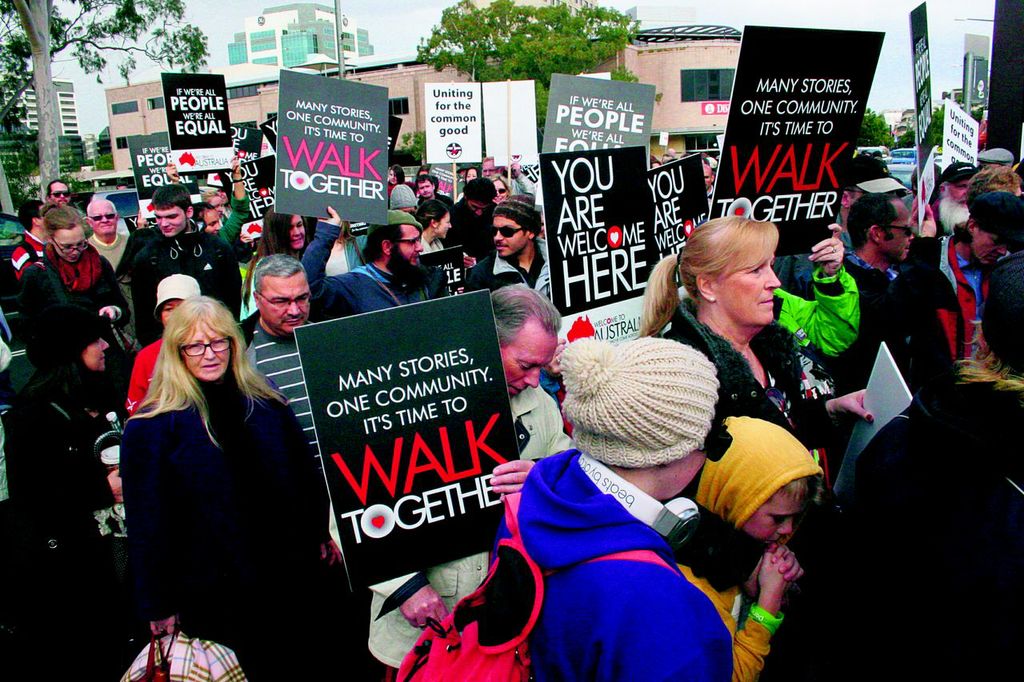Welcome to Australia organiser, Sheila Druery, said: “Walk Together aims to celebrate new Australians adding to our multicultural identity. We aim to raise awareness and call on the politicians to end their fear mongering campaign and show compassion and inclusion.”
By changing the tone of the conversation and informing people on the plight and rights of refugees, Ms Druery believes we can change policy.
One organisation represented on the day, iamaboatperson.com, aims to strengthen the positive conversations around asylum seekers and to correct the myth that “it is illegal to seek asylum”. Terms like “illegal” and “queue jumpers” are false and misleading.
Gemma Jamison, a member of iamaboatperson.com, said: “We are all boat people, we all came by boat at one stage.” Through social media, including YouTube videos, iamaboatperson aims to spread the word and correctly define the terms of the refugee debate, and place them historically to correct the misconceptions often perpetuated by politicians and radio shock-jocks.
Australia hosted an estimated 50,000 refugees and asylum seekers in 2012 according to the annual report on global trends by the United Nations High Commission for Refugees. Australia is 49th on the list of host countries for refugees in 2012 with 55 per cent of refugees worldwide coming from five war-affected countries: Afghanistan, Somalia, Iraq, Syria and Sudan. It’s worth noting Australia’s involvement in two of those wars.
The Jesuit Refugee Service, an organisation that helps with the transition process of settling in Australia, also took part in the walk. “We work with those who tend to fall through the cracks. Usually the people come by plane, not by boat – which is the group they don’t usually talk about in the media. They have come on some sort of visa already and they seek asylum when they get here. So they have managed to get enough cash together to buy their ticket or get their visa sorted but then arrive with $100 in their pocket and are destitute within a couple of days. They need help to find a job and somewhere to stay. We support them until they are able to live independently,” said a representative from the Jesuit Refugee Service Australia.
However, there is a lack of refugee transition services as they are not government funded and depend on private donations.
Sudanese refugee turned human rights lawyer, Deng Thaik Adut, told his story of seeking asylum. After a life of war and famine in Sudan, Deng was shot as a child soldier then treated in a UN camp where he met Australians who helped him gain a visa. “Magic happened, magic by something called people smuggling. You all well know, if Australians know something is wrong in another country you go there and lend a hand. Australia is a country in my dreams without which I never would have become a lawyer. I’d ask politicians to not stop that miracle.”





